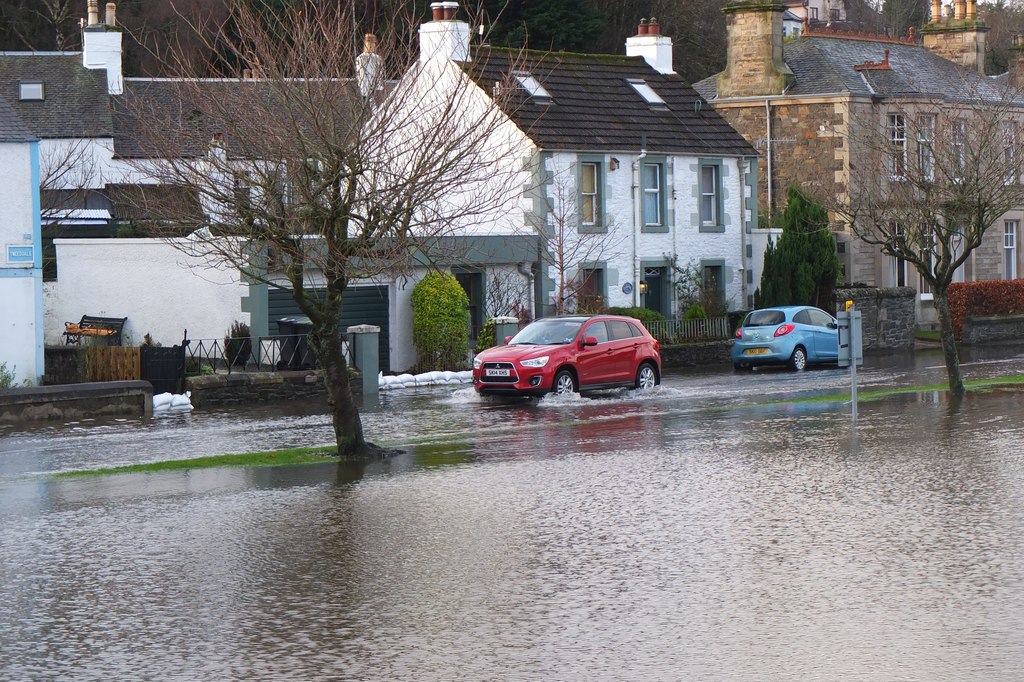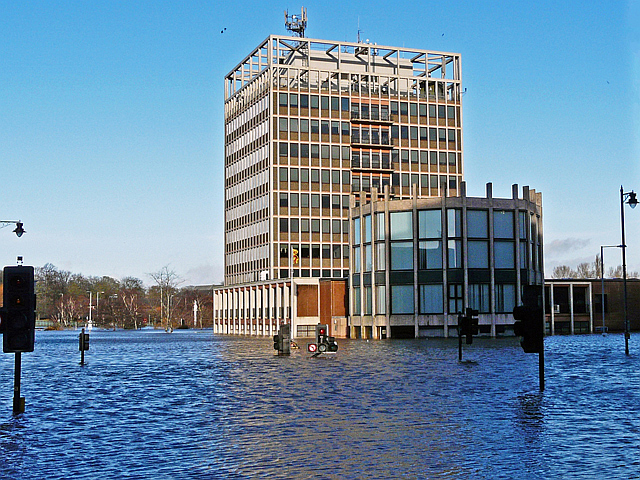The British Insurance Brokers' Association is concerned the ringfenced government fund for flood defences could be absorbed into other areas through both party's ambitious spending plans

Flooding in Scotland caused by Storm Desmond in 2015 (Credit: Jim Barton)
Reacting to bold spending pledges ahead of the UK General Election, the British Insurance Brokers’ Association (BIBA) has called on the incoming government to honour a promise to use Insurance Premium Tax (IPT) revenue for spending on flood defences.
In October 2016, the rate of IPT — a government tax levied on general insurance policies — charged on home insurance policies increased from 9.5% to 10%, with the government promising to ringfence the extra 0.5% for spending on flood defence.
But with both the Conservatives and Labour announcing ambitious spending plans, BIBA is concerned the commitment might be abandoned by the next government.
Executive director Graeme Trudgill said: “With a whole host of spending commitments made by each of the major parties already in this election campaign, it is vital that this earmarked pot of money is not absorbed into general government revenues and spent in other areas.
“The devastating effects of flooding upon both individuals and communities are clear, and our members help them recover and rebuild when the worst happens.

“Brokers tell us how important the protection afforded by flood defences is to their customers and to the wider economy.
“Defences save the UK around £1.1bn each year in flood prevention, and aside from the considerable human importance defences offer, they represent excellent value for money.”
In a March 2016 policy paper, the government claimed the ringfenced fund would reach £210m ($270m) between 2020 and 2021.
According to the estimates — which were verified by non-departmental economic forecaster the Office for Budget Responsibility — the current amount should be £205m ($263.5m).
Inland flood defences save UK £1.1bn
Trudgill’s claim that the UK saves £1.1bn ($1.41bn) through flood defences is based on findings from research carried out by government-backed reinsurer Flood Re and catastrophe risk modelling firm Risk Management Solutions (RMS).
The organisation’s report, released in June this year, claimed the savings correspond to a 63% reduction in national flood losses.
For Storm Desmond — a tropical cyclone that caused flooding in several areas of the UK in December 2015 — Flood Re claimed the total flood losses of £717m ($921m) would have been £2.2bn ($2.82bn) higher without defences.

At the time, RMS global managing director Daniel Stander said: “I’ve often heard it said that an ounce of protection is worth a pound of cure. Such platitudes, however, cannot be allowed to suffice – especially in the face of events that wreck homes, lives and communities.
“Thanks to this study, what we now have is robust methodology for demonstrating the return on investments in resilience.
“With climate risk increasing, it’s even more important that stakeholders avail themselves of such analytical techniques — only then can we hope to build a sustainable future for all.”
The UK government pledged to allocate £700m ($898m) for flood defence and resilience by 2021 in its 2016 budget — with a further £76m ($97.6m) added in 2017, and £13m ($16.7m) in 2018.
According to budget documents, the extra spending will bring the total spent on flood defence between 2015 and 2021 to more than £2.6bn ($3.34bn).
